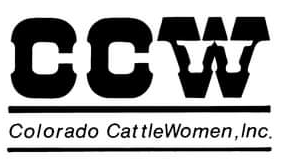Final Updated Traceability Rule Published
USDA-APHIS has published their final rule on traceability to the Federal Register. The published rule completes the agency’s updates to their 2013 regulations, to require certain classes of cattle to be tagged with visually readable, electronic identification (EID) tags instead of only visual (metal) tags before moving interstate.
For more details on the content of the final rule, please see below. The effective date of the rule is November 5, 2024.
An important reminder: metal tags applied to cattle before November 5 are grandfathered in and acceptable under this final rule for the duration of the life of the animal. Cattle being tagged on and after November 5 will be required to have an EID tag before moving interstate.
The Animal and Plant Health Inspection Service (APHIS) at the U.S. Department of Agriculture (USDA) today announced publication of a Final Rule to update the 2013 animal disease traceability rule by requiring visually-readable, electronic identification (EID) of certain cattle prior to interstate movement. As addressed in the Proposed Rule, to which NCBA submitted comments, the policy changes required by today’s Final Rule will not take effect for six (6) months.
This rule is largely in line with the provisions outlined in the proposal. Sexually intact cattle over the age of 18 months, all dairy cattle (which includes cattle born on dairies regardless of breed or classification), and all show/exhibition/rodeo cattle will be required to be electronically identified prior to interstate movement. USDA has stressed in their communications that, outside of the dairy industry, today’s rule does not change the requirements for the types of cattle which must be officially identified, but rather changes the specifications of the official ID.
APHIS further clarified this morning that existing metal ear tags applied through the end of the six month waiting period before this rule takes effect will be grandfathered as official identification for the life of the animal with that tag. Note: If that tag falls out after this rule takes effect, it will need to be replaced with the an 840 tag or subsequently approved electronically and visually readable tag.
While the rule is technology neutral, only RFID tags (840s) are currently approved by APHIS for official identification. New technologies are expected to be approved by APHIS as they come to market and are proven to be compliant with other criteria of the rule. All EID tags are also required to be visually readable, which is defined as easily readable with 20/20 vision at a distance of 30 inches.
The Final Rule makes no changes to the use of brands and/or tattoos as official identification for those animals not covered by the rule (e.g., under 18 months, not moving interstate, etc.).
Regarding commuter herds, for those producers who maintain active herd agreements with relevant State or Tribal animal health officials, cattle and bison may be moved interstate between two premises, without a change of ownership, in the course of normal operations under current regulation [See 9 CFR 86.4(b)(1)(i)(A)]. Today’s Final Rule does not affect those regulations and therefore does not impact interstate movement of commuter herds.
As a reminder, the Consolidated Appropriations Act of 2024 included NCBA’s request for funding to ensure producers are not bearing the cost of compliance with the rule. The law dedicates $15 million of APHIS existing budget to “provide…electronic identification tags and related infrastructure needed for stakeholders to comply with the proposed rule,” (Page 11 at this link). APHIS indicated they intend to distribute tags via state animal health officials and will be encouraging producers to reach out to their relevant state agencies for further information and tags. Affiliates should report any issues or concerns to the NCBA DC office.
Separately, APHIS today also announced revisions to their user fee schedule for the Agricultural Quarantine and Inspection (AQI) program to better meet the challenge of protecting American agriculture (see attached).
NCBA expects USDA to host stakeholder information sessions on this topic in the coming weeks, and we will keep affiliates apprised of any such events or new information.
NCBA is closely monitoring the rollout of this rule and remains in close contact with USDA personnel to help ensure a smooth transition. We will keep affiliates apprised of any new information, stakeholder education sessions, or other APHIS guidance related to this issue. In the meantime, as always, please do not hesitate to reach out with any questions or concerns.
